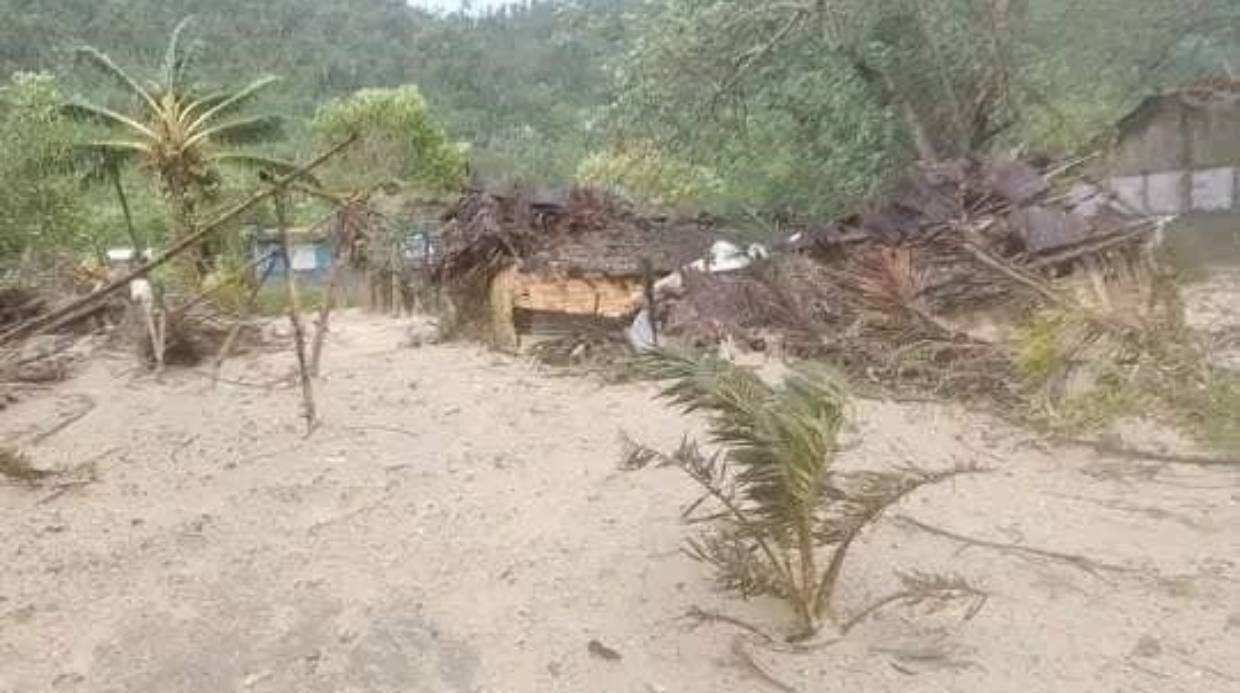The full extent of the destruction caused by Tropical Cyclones (TCs) Judy and Kevin is yet to be determined, as disaster officials are still assessing the impacts.
The nation is in a State of Emergency (SOE) after it was slammed by the two powerful cyclones last week. With some areas still lacking mobile networks or road access, assessing the extent of the damage will be difficult.
Aerial surveillance has been conducted to identify the worst affected areas immediately after the ‘All Clear’.
Initial community assessments are being conducted at the Area Council and Provincial levels.
Initial relief and in depth need assessment is coordinated by the National Emergency Operation Centre (NEOC). 19 teams have been deployed from Port Vila yesterday to conduct rapid assessment on Efate and TAFEA Province. It appears that the provinces of SHEFA and TAFEA are worst-hit areas.
The provision of assistance including relief supplies will be determined on the basis of the assessment reports. Usually, after assessing the damage, a final report will be submitted to the National Disaster Committee (NDC) and the Council of Ministers (COM) for endorsement with recommendations on how the government should respond to recovery needs.
The Minister of Climate Change and Natural Disasters, Ralph Regenvanu, said the government should have a clear response plan by the end of this week.
Once a SOE is declared, up to 1.5% of the national budget can be released in response to the disaster. Minister Regenvanu explained that the law allows for spending to continue based on the previous year budget level if it is not possible to pass this year’s budget.
Regenvanu said the budget needs to be approved before end of this month.
While authorities are taking stock of the damage, affected families and communities are helping each other rebuild homes, restoring water systems and clearing blocked roads. In Port Vila, power is still being restored and some people are still in evacuation centers after losing homes.
The NDMO reported that approximately 271,000 people in Vanuatu are affected. There are no numbers so far on deaths, people injured or homes destroyed.
The destructive winds from the cyclones uprooted countless trees and blew away the roofs of many homes including work places, schools and health facilities. Strong surges damaged coastal areas and excessive rain and flooding destroyed infrastructures and also resulted to evacuation.
The delivery of emergency relief particularly non-food items is underway with assistance from donor countries like Australia and France.
Delivery of major relief supplies will be based on initial assessments.
Vanuatu is considered to be the country most vulnerable to climate change and disasters in the Pacific and in the world.
Meanwhile, the office of the Leader of the Vanuatu Opposition is calling on the Government to ensure fair distribution of relief supplies without political influence.
In a statement, the Office of the Opposition expressed concern that the Prime Minister had made a public statement indicating that the government’s priorities were caucus-driven and intentionally omitted opposition Members of Parliament (MPs) and their constituencies.
The Opposition fears that this approach to disaster relief for Tropical Cyclone (TC) Judy and TC Kevin could be politically motivated and may scare off development and humanitarian partners.
The Office of the Opposition expressed its sympathy with all citizens of Vanuatu affected by the cyclones and called on the government and its humanitarian partners to provide immediate relief supplies to all affected citizens and residents of the country.
The Opposition also urged community leaders to support and prepare their families and communities for the remaining cyclone season until the end of April.
SOURCE: VANUATU DAILY POST/PACNEWS














